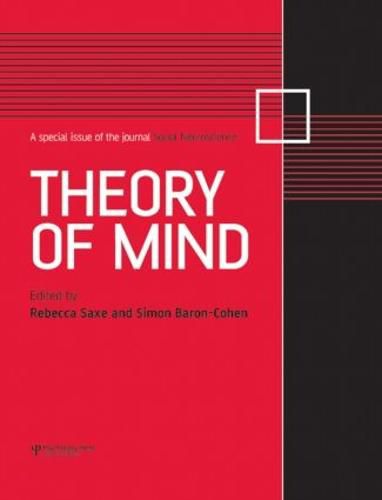Readings Newsletter
Become a Readings Member to make your shopping experience even easier.
Sign in or sign up for free!
You’re not far away from qualifying for FREE standard shipping within Australia
You’ve qualified for FREE standard shipping within Australia
The cart is loading…






Investigations of the neural basis of theory of mind - the ability to think about other people’s thoughts - only recently became feasible; now, the number of such investigations and the sophistication of the results are accelerating dramatically.
The articles in this special issue use a wide range of techniques (including fMRI, EEG, TMS, and psychophisiology) and subject populations (including children, twins, and patients with developmental or acquired neural damage) to address fundamental questions about the cognitive and neural structure of theory of mind.
Topics include: (1) the relationship between theory of mind and other, perhaps precursor , social cognitive processes, such as empathy and the perception of biological motion; (2) the relationship between theory of mind and domain-general cognitive functions, such as executive function and language; and (3) how theory of mind is deployed in real social contexts, such as social exchange.
$9.00 standard shipping within Australia
FREE standard shipping within Australia for orders over $100.00
Express & International shipping calculated at checkout
Investigations of the neural basis of theory of mind - the ability to think about other people’s thoughts - only recently became feasible; now, the number of such investigations and the sophistication of the results are accelerating dramatically.
The articles in this special issue use a wide range of techniques (including fMRI, EEG, TMS, and psychophisiology) and subject populations (including children, twins, and patients with developmental or acquired neural damage) to address fundamental questions about the cognitive and neural structure of theory of mind.
Topics include: (1) the relationship between theory of mind and other, perhaps precursor , social cognitive processes, such as empathy and the perception of biological motion; (2) the relationship between theory of mind and domain-general cognitive functions, such as executive function and language; and (3) how theory of mind is deployed in real social contexts, such as social exchange.